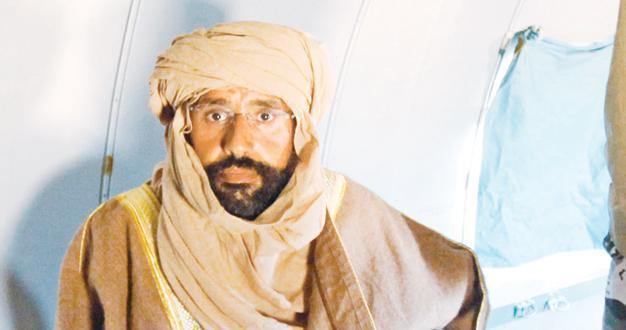ICC officials meeting Seif detained in Libya
TRIPOLI

Seif al-Islam is pictured sitting in a plane in Zintan after his capture in this November 19, 2011 file photo. ICC oficials have been detained during a visit to Seif. REUTERS photo
Four International Criminal Court staff have been arrested in Libya during a visit to arrange the defense for slain dictator Moammar Gadhafi’s detained son Seif al-Islam, the tribunal said June 9.A commander with the Zintan brigade, the former rebel fighters who captured Seif and are still holding him, said one of the lawyers with the group had been arrested after trying to pass “dangerous” documents to him.
An ICC statement called for their release and urged Tripoli to ensure that they were safe. Their team had been detained since June 7, it added. Sources in Libya said Australian lawyer Melinda Taylor had been arrested after trying to pass documents to Seif. “These four international civil servants have immunity when on an official ICC mission,” said court President Sang-Hyun Song. The four detained include at least one of two lawyers the court has assigned to help defend the legal interests of Seif, who has been held by revolutionary fighters since his capture in November.
Ahmed al-Jehani, Libya’s representative to the ICC, said Taylor was “under house arrest in Zintan, not in prison” and was being questioned. Ajmi al-Atiri, commander of the Zintan brigade, said a team of four ICC delegates had come to visit Seif al-Islam on June 7 and had asked to meet him in private, a request they had been refused. The documents in question included an unsigned letter from Seif to the ICC saying “there is no government or law in Libya” and that he was being “ill-treated,” he said. There was also a blank document signed by him.
Under international law, a country has the first right to try suspects for crimes committed on its own soil. But the ICC indicted Seif al-Islam before the fall of his father’s regime and cannot drop his case until it is convinced that Libya’s new government will prosecute him for the same crimes and that it is capable of giving him a fair trial.
Compiled from AFP and AP stories by the Daily News staff.
















